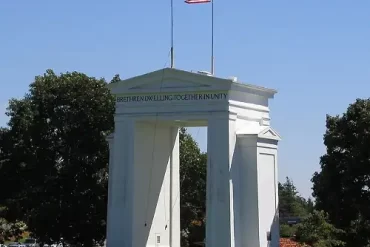When I critique Jatia Samajtantrik Dal (hereafter, Jasod ), I feel like I am stabbing myself. Once upon a time, I was infatuated with this party. I was involved with this party for many years of my life. Those were years of blindness and fascination. The ability to blur vision and to charm is a special one. Mesmerized by the youthful spell of Jasod, many like me gathered under the flag of this party. When I think of the thrust of inexorable wave of youthful life bursting out of the body politic of Bangladesh, a pleasant amazement excites and bewilders me. When thought of those little-known youths arises in my mind, a feeling of deep sorrow covers my entire existence.
There are many critics who love to lambast Jasod every week in the op-ed columns of newspapers. I have no say about them. Those grey-headed ‘scholars’ who earn a living by happily writing away sarcastic eight-column-commentaries watching the cruel and miserable defeat of thousands of enthusiastic youths—who were like the warm breath of Bangladesh—would need to berate someone till the end of time in order to exhibited their intellect.
But there was once a time, when many of these very intellectuals used to willfully train revolutionary ideals to the rank and file of this party, whose leaders they couldn’t reach even if they tried so. And now, they offer a bag full of condemnation. But who are they deriding by the way? Isn’t it their own disgraceful past? Everybody knows that the lively fountain of Jasod is no more. One doesn’t need to be a ‘rocket scientist’ to say that. The people of this county are a witness to the reality that the party is dying down. Now the analysts want to issue death certificate. The question remains, do they have the competence and moral right to do so? But let it be, I shall say here what I want to.
I had placed my faith in this party; had stood by them with all my means. Even the founders of Jasod have, by now, rather gracefully accepted the fate of their party. They act as if they knew all along the destiny of such imprudent kids. They had acted as the main protagonists of the soap opera that was Jatia Samajtantrik Dal in a bid to excite the masses. The three seasons of the drama serial have finished. The actors and actresses are now seasoned artists. And any producer or director can hire them for their own plays nowadays.
In the mean time, my psychological purity has been violated by acts of betrayal. But, I believe the ability to love is a special one; even if in-vain-love is not unheard of in history. Although the damage has been done and I have ruined a part of my life chasing Jasod, I cannot swear that I will not do the same if urged again. I repent not; it is a kind of loss that cannot be complained about. Nevertheless, I have my writings and my obligations and my skills. I shan’t have much trouble in living this evanescent life. But the woman who has lost her husband; the child whose father has walked the gallows with a smiling face; the families which have lost all they had; the young chap who, being devoid of all hopes and aspirations, has to wear the thorny crown of existence everyday—where will they plea? In which court will they seek justice? In that sense, my loss is nothing compared to theirs. My losses invoke a sense of pride in me instead of sorrow. I was able to respond to the call of time. I was lucky enough to observe a tumultuous epoch full of ups and downs in our history. That’s not a small thing for a man. Notwithstanding all that, a feeling of guilt is crushing me like a boulder even today. My blood boils when I think of it, and it drives me crazy. I have picked up pen today to express that specific emotion of mine towards Jasod.
I know not how to express myself. Man can express trivial emotions of gain or loss easily, but cannot do so for feelings of utter disappointment. But I shall still try.
I have a sort of reactionary feeling. When I think of three certain young leaders of Jasod, a metaphor springs up in my mind automatically. It is as if the three best Muslin -weavers of one time have taken contract to stitch up torn old cloth. If I could have murdered these three people before 1980, I would have been able to preserve three enduring symbols of Bengali young generation in history. They would have remained as the relics of revolution. Alas, it was not possible for my own shortcomings. But I had the chance, and this failure makes me suicidal at times. I would have had to pay the price for such an act. But I would at least have secured a place in history for me; be it as a traitor like Judas. Many are saying that because of Jasod, a vacuum has been created in the process of political evolution in the country. The same is true for the party established by Siraj Sikder . But in the way and manner they hampered a normal political growth in Bangladesh differs. But I shall come to that later.
Political parties fail when they take wrong line of action or adopt counter-productive programs by dint of erroneous analysis of the existing social forces. With them, fail the hopes and aspirations of the classes that these parties say they represent, or those that put faith on and lend active support to them. Despair and fathomless emptiness descend upon their support-base within the society. The utter defeat of Jasod and Siraj Sikder’s party, primarily, heralded the era of direct military intervention in the political sphere of Bangladesh. Secondly, it allowed the re-emergence of fundamentalism. The young activists of Jasod and Siraj Sikder’s Sarbahara Party were the most probable promising force for social transformation in Bangladesh. These two parties emerged in the post-liberation period. The lion’s share of the leaders and activists of Jasod came from Awami League (hereafter, AL), while the party of Siraj Sikder emerged through the gradual changes and divisions of the communist movement of this country. The two parties share some common traits; activists of both the parties epitomized in them the upheavals of possible social change in post-liberation Bangladesh. In short, their activists demonstrated the indomitable zeal of bearing the most volatile emotions of the society. Moreover, they tried to feel the vagueness of the old-fashioned parliamentary-style democratic movements and the structural ineffectiveness of the outdated communist organizations through their emotions, if not by their wits. Although their methods were counter-productive and activities were violent, at times they produced glimpses of examples of what course the political currents should take in a third world country like Bangladesh. But in the same vein, it would not be a mistake to say that these two political parties lacked any stable political philosophy. In reality, Jasod talked of establishing ‘Scientific Socialism’ and Siraj Sikder blindly followed China’s Mao Zedong. But the consequence of their fruitless politics has been that Siraj Sikder’s party disappeared from the political sphere like a flash of lightning. Nowadays, dacoits commit looting and robbery uttering the slogans ‘long live Siraj Sikder’ and ‘long live the Sarbahara Party’. What a miserable ending of Siraj Sikder’s politics! On the other hand, Jasod is still in existence; but not as one body. It has many factions, many shareholders. But they are like phantoms: they do not possess the power to even organize reactionary activities if they cannot bewitch other political bodies. Once, the moon was a part of the earth. The earth had not yet cooled down to solid state. The process had just begun. Suddenly, an asteroid went past the earth at unimaginable velocity. Due to the gravitational force of that celestial body, a part of the boiling volatile earth came off and started rotating in a separate orbit. As it was so small in mass, it lost heat quickly—that is the moon we see in the heavens.
The War of Liberation of Bangladesh separated two streams from the larger political flow that had existed. The spin off from the nationalist AL was Jasod and that which splintered from the pro-Chinese communist politics became known as the Sarbahara Paty.
Now, let’s examine how and why Jasod came into being. During the War of Independence, the Indian government took the initiative of forming the Bangladesh government-in-exile under the leadership of Tajuddin . At that time, Sheikh Mujib was in Pakistani prison. The Indian government was aiding the Tajuddin government, but could not be assured. It had its doubts whether Sheikh Mujub would be able to return from Pakistani prison. The Indian government was also not confident about Tajuddin’s ability to control the turbulent circumstances in a Mujib-less Bangladesh. New Delhi was almost certain that the luxury-loving leadership of AL would fail to bear the heavy burden of containing the situation after returning to Bangladesh. In case the war had protracted, they formed and started training the Mujub Bahini as a second line of defense under the leadership of Mr. Serajul Alam Khan and the Late Fazlul Haque Moni . The Indian government did not even feel it necessary to consult the Tajuddin government regarding the formation of Mujib Bahini. The leaders of this (irregular) force had many a times openly challenged the leadership of Tajuddin. Those who have read the book ‘Muldhara-71’ written by Maidul Hasan know all about it.
After the liberation, the members of Mujib Bahini came back to Bangladesh alongside Tajuddin. Differences of opinion started to emerge between Serajul Alam Khan and Fazlul Haque Moni on various issues. Moni had challenged the Tajuddin government while in India; but when Sheikh Mujib returned from Pakistan and took up the supreme command of the country, Moni judged it best to support his maternal uncle’s government. I have put it simply, but the rivalry between Seraj and Moni did not neutralize so easily. AL is a multi-class political organization under the control of the middle class. But the political ambitions of all the classes that AL represents had, no doubt, also contributed to this process of breaking up. This could be a topic of research for social scientists.
Basically, the faction of AL having a fighting attitude became known as Jasod in the post-liberation period. One more truth must also be revealed: the then Finance Minister, the Late Tajuddin helped this party with money and other assistance during its formative years. At that time, many thought that Tajuddin was helping this party as a hedge for him in the future if ever a rift between Mujib and Tajuddin would occur. In course of time, that rift obviously occurred, but never there existed a reality for him to join Jasod. And the young Turks of Jasod would never have accepted the dictations of any AL leader. There could be yet another side to the story. Perhaps, Sheikh Mujib himself secretly agreed to the creation of Jasod. It would be wrong not to assume that, in the face of infighting within AL and political compulsion of its allies CPB and NAP , Sheikh Mujib might have seen Jasod as a way to exert pressure on the former. Recently, the news that is emerging on the frequent secret meetings between Sheikh Mujib and Jasod leaders indicates that fact.
Let’s turn our attention to Jasod [again] . Basically, a faction of AL later went on to create Jasod. A faction of the youth involved with AL—many of whom were from a lower class background— assembled under the flag of Jasod. Due to the bifurcation of the Communist Party into pro-Moscow and pro-Peking blocs and their inability to acknowledge the Bengali national identity, most youths from the lower-middle class had joined the AL. If the communists had avoided this confusion from the beginning, the history of Bangladesh would have been written differently. But there is no use discussing the counterfactual. What I want to assert is that Jasod is a part of AL. Whereas, the platform of the nationalistic structure on which the AL politically stood was not wide enough; [AL’s] feelings for and understandings of a national ideology was not sharp enough; [AL] did not have any well articulated work-plan for economic re-construction; [AL] encouraged politics of plunder and pillage instead of establishing a great and superior ideology; and [some within AL] could not able to participate as a stakeholder in matters of national policy, a part of AL was compelled to break away from it with forceful emotions. If we think deeply, it would be evident that AL lost its ability to function as a nationalist party the very day when the most radical and militant portion of it had left to form Jasod. Notwithstanding, AL has not died out, mainly because it is a huge political body. But AL hasn’t got the political will either to stand upright with that body or to progress forward. Basically, AL’s history since 1975 is a history of their political demoralization. A prime example of how deep this process of demoralization went is that after the assassination of Sheikh Mujib along with his family, [almost] not a single voice of instant protest could be hard in this country. Can such an instance be found in world history? The burden of AL’s feeling of moral guilt was so heavy that, until the recent years, it has not managed to relieve itself to stand on its feet again.
So, Jasod was established. Their manifesto declared grandiloquent goals of achieving scientific socialism. They started working with the aim of conducting social revolution along the lines of Marxism-Leninism. Millions of young people signed up like insects flying into fire. Their exuberantly emotional voices echoed from one corner of the country to the other like the sounds of a gale. But what were the end-results of all of this?
Jasod leaders were boastfully proclaiming the establishment of Marxism-Leninism, the streets were vibrant with slogans and processions, the walls were painted with graffiti containing political rhetoric. But in nature, they bore the worst characteristics of AL. Jasod vowed to continue class-struggle, but could not secure its own position in the country. So much inclination towards power was evident in their nature and behavior that their activities could be best described as the acts of a rebellious son against his father. Jasod managed to convince its activists that they had the right to seize power from AL. Many of the Jasod leaders and activists consciously believed that—and even did not hesitate to openly say in public—it was they who had placed Sheikh Mujib in a position of power; [so] they had the legitimate right to oust him—even to murder him, if needed—in order to grab power.
Their declaration of revolution, their oath in the name of Marxism for social transformation—all these were just pretext. Their real objective was to get a share of the power. But the bleaker their prospects of gaining power became, the greedier and disheartened they became. The death of countless young men, their endurance of oppression and misdeeds—all these were direct symptoms of such disappointments.
He who does not respect personal sacrifice, devotion and solemn commitment to revolution, can be termed as a brute. After the death of Sheikh Mujib, the scripts representing claims to the throne were swept away by a torrent of blood. From where will a prince gather the courage to occupy the throne when someone else usurps his father—the king? Still, in the minds of a section of Jasod, the policy of capturing power by hook or by crook has been engraved in stone. Are the activities of Serajul Alam Khan and Mr. Rab not the perfect example of that? Sheikh Mujib had created tigers, and others are showing circus-stunts with those tigers.
I am at the fag-end of this analysis. AL had become weak due to the departure of the section of Jasod from it, and Jasod virtually died along with the toppling of AL. The mother and the son died together in the same labor room. This remains a tragic episode of the defeat of our nationalism.
Written sometime between 1987-1990. First published in the weekly Uttoron magazine.
Ahmed Sofa (June 30, 1943 – July 28, 2001) was an eminent writer, intellectual and activist of Bangladesh.
This article was compiled in Ahmed Sofa Rachonaboli – Saptom Khando (Collected Works of Ahmed Sofa – Volume Seven), Nurul Anwar (ed.), Khan Brothers and Company, Dhaka: 2008, pp.168-174.
Translated by Kazi Niaz Ahmed, who is a researcher at the Institute of Governance Studies (IGS), BRAC University. He is also the publisher or Foreign Affairs Insights and Reviews, a Dhaka-based bi-monthly magazine.







